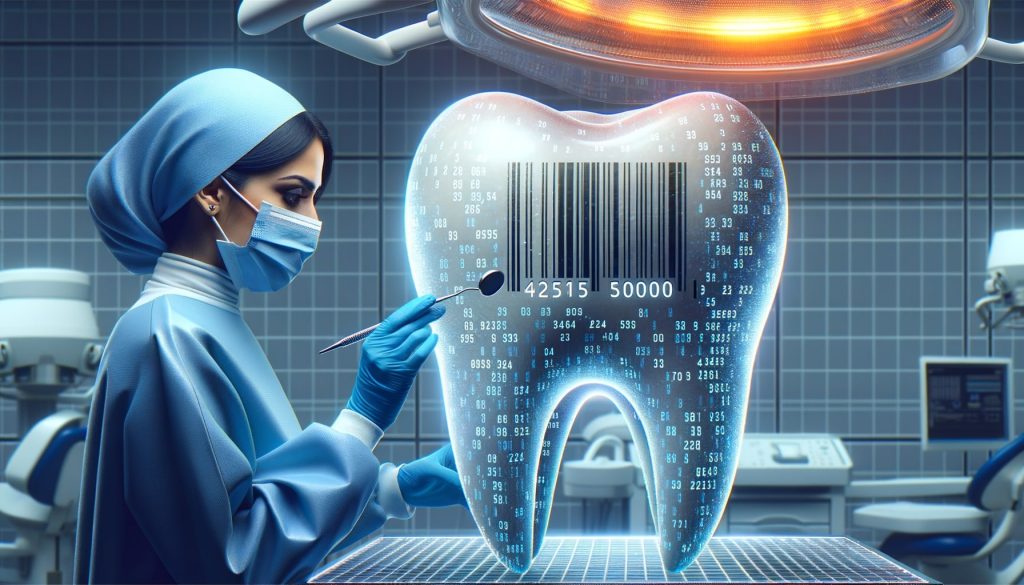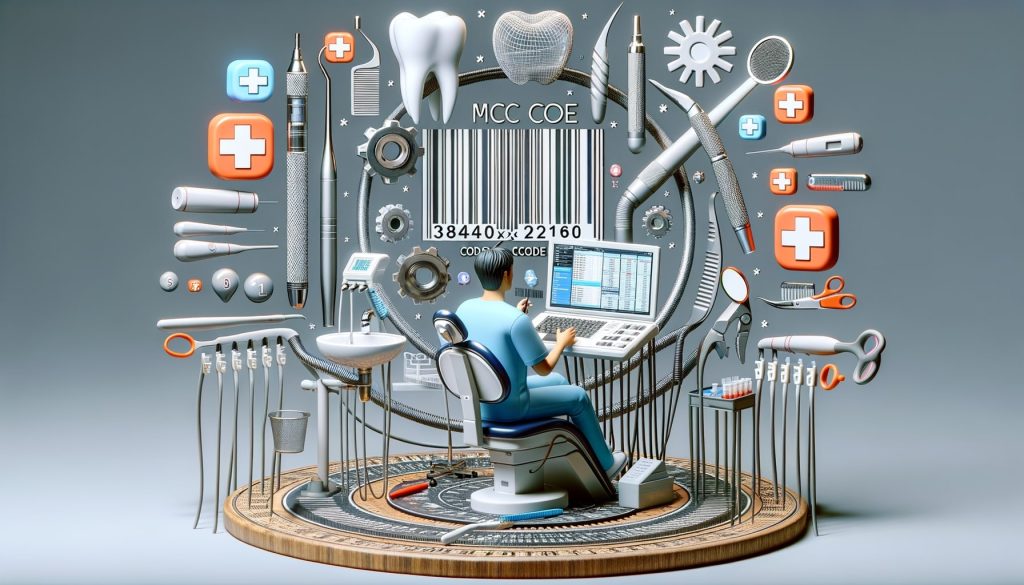By alphacardprocess October 17, 2024
Merchant Category Codes (MCC) play a significant role in the operations of any business that accepts credit or debit card payments, including dental practices. These four-digit codes are used by payment networks to categorize businesses by the types of services they provide. For dentists, understanding MCC codes is crucial because they affect processing fees, tax reporting, compliance, and even patient payment options.
This comprehensive guide will explain what MCC codes are, why they matter to dental practices, and how dentists can ensure they are using the correct MCC code. By the end of this guide, you will have a clear understanding of MCC codes and their impact on your dental practice’s financial operations.
What Are MCC Codes?
An MCC code is a four-digit number assigned to a business by credit card networks, such as Visa, Mastercard, American Express, and Discover. These codes are used to identify the primary goods or services provided by the business. The MCC code helps categorize businesses for various purposes, including determining the interchange fees for credit card transactions, tax reporting, and compliance with industry regulations.
Purpose of MCC Codes
MCC codes serve several essential purposes in the payment processing ecosystem, including:
- Fee Calculation: MCC codes help determine the interchange fees charged by card networks. These fees are based on the risk profile of the business. High-risk industries tend to have higher fees, while lower-risk businesses enjoy lower fees.
- Tax Reporting: Some MCC codes are used to identify businesses eligible for tax benefits or deductions. For example, charitable organizations have specific MCC codes that allow donors to claim tax deductions.
- Rewards Programs: Credit card companies often use MCC codes to categorize purchases that are eligible for rewards like cashback or points. Understanding your MCC code ensures that patients can earn rewards when paying with their credit cards.
- Compliance: Certain industries, including healthcare and dental practices, must comply with specific regulations related to security, privacy, and reporting. MCC codes help credit card networks and regulators identify these businesses and enforce compliance requirements.
Why MCC Codes Matter for Dentists

For dental practices, MCC codes have a direct impact on payment processing costs, regulatory compliance, and patient satisfaction. Ensuring that your dental practice is classified under the correct MCC code can help avoid unnecessary fees and ensure compliance with relevant regulations.
1. Impact on Payment Processing Fees
One of the primary reasons MCC codes are important for dental practices is their effect on interchange fees. Interchange fees are the fees that businesses pay to card-issuing banks every time a credit or debit card is used for payment. These fees are not static and vary based on the type of business, the risk associated with the transaction, and the payment method used.
Dental practices typically fall under a lower-risk category compared to industries like e-commerce or gambling. Therefore, being classified under the correct MCC code ensures that your practice pays lower interchange fees, which can significantly affect your bottom line over time.
For dentists, the correct MCC code is usually 8021, which is specifically designated for dentists and orthodontists. This code ensures that your practice is categorized correctly, helping you avoid being classified as a higher-risk business.
2. Tax Reporting and Deductions
Certain MCC codes can affect your practice’s eligibility for tax deductions or benefits. For example, if your dental practice offers charitable services or works with nonprofit organizations, you may need to use a specific MCC code that reflects these activities. Incorrect classification could result in lost opportunities for tax deductions or, in some cases, regulatory penalties.
Additionally, healthcare providers, including dentists, must ensure they comply with the Health Insurance Portability and Accountability Act (HIPAA) and other healthcare-related regulations. Proper MCC code classification helps ensure that your payment processing is compliant with industry standards.
3. Compliance with Industry Regulations
Dentists must adhere to several regulations related to healthcare and financial transactions. These regulations include PCI DSS (Payment Card Industry Data Security Standard) compliance, which ensures the security of credit card transactions, and HIPAA compliance, which protects patient health information. Having the correct MCC code ensures that your payment processor is aware of the specific regulatory requirements for dental practices and can provide the necessary security measures.
Failure to comply with these regulations can lead to fines, increased scrutiny, or even the suspension of your ability to process credit card transactions. Therefore, choosing the correct MCC code is critical for ensuring compliance and avoiding costly penalties.
4. Credit Card Rewards and Patient Satisfaction
Many patients use credit cards with rewards programs that offer cashback, points, or travel miles. The MCC code assigned to your dental practice determines whether patient transactions are eligible for rewards. If your practice is misclassified under an incorrect MCC code, patients may not receive their expected rewards, leading to dissatisfaction.
To maintain a positive patient experience and encourage timely payments, ensure your dental practice is classified correctly so that patients can take full advantage of their credit card rewards.
How MCC Codes Are Assigned
Who Assigns MCC Codes?
MCC codes are assigned by payment processors or acquiring banks when you set up a merchant account to accept credit and debit card payments. These payment processors work with credit card networks like Visa, Mastercard, and others to classify your business under the appropriate MCC code based on the primary services you provide.
Criteria for Assigning MCC Codes
Payment processors use several criteria to determine your business’s MCC code, including:
- Primary Business Activity: The primary service you offer, such as dental care, determines the MCC code. For dentists, the most commonly used MCC code is 8021, which covers dental professionals.
- Industry Classification: Some businesses may fall into multiple categories, but payment processors typically assign the MCC code that best reflects the primary activity of your practice. For example, a dental office that also offers cosmetic procedures will still be classified under the MCC code for dental services.
- Risk Profile: The level of risk associated with the business also affects the assigned MCC code. Dental practices, which typically involve lower transaction risks than e-commerce or gambling businesses, are categorized under lower-risk MCC codes.
How to Ensure Your Dental Practice Has the Right MCC Code

1. Verify Your Current MCC Code
The first step in ensuring your dental practice has the correct MCC code is to verify your current classification. You can do this by checking your monthly processing statements, which typically display the MCC code used for your transactions. If your code is not listed on your statements, you can contact your payment processor directly for this information.
2. Work with Your Payment Processor
If you discover that your dental practice is classified under the wrong MCC code, contact your payment processor or acquiring bank to request a reclassification. Be prepared to provide details about your practice’s primary services to ensure that your business is correctly categorized. In most cases, payment processors will work with you to update your MCC code based on the documentation you provide.
3. Review Your Processing Fees
If your dental practice is paying higher-than-expected processing fees, it may be due to an incorrect MCC code. Review your interchange fees and compare them to industry standards for dental practices. If your fees seem excessive, it could be a sign that your practice has been misclassified, and you should contact your payment processor to correct the issue.
4. Ensure Compliance with Industry Regulations
Once you have verified that your MCC code is correct, ensure that your payment processing system complies with all relevant regulations, including PCI DSS and HIPAA. Your payment processor should provide tools and resources to help you meet these requirements and protect patient payment and health information.
FAQs About MCC Codes for Dentists
Q1: What is the correct MCC code for a dental practice?
The most common MCC code for dental practices is 8021, which is specifically designated for dentists and orthodontists. This code ensures that your practice is categorized accurately for payment processing purposes.
Q2: How do MCC codes affect my dental practice’s fees?
MCC codes impact the interchange fees charged by credit card networks. Dental practices classified under low-risk MCC codes, such as 8021, typically pay lower interchange fees than businesses in high-risk industries.
Q3: Can my dental practice have more than one MCC code?
Most dental practices are assigned a single MCC code based on their primary services. However, if your practice offers a wide range of services, such as cosmetic or medical procedures, you may be assigned multiple MCC codes. It’s important to work with your payment processor to ensure accurate classification.
Q4: How do I verify my MCC code?
You can verify your MCC code by reviewing your payment processing statements or contacting your payment processor. The MCC code should be clearly listed on your statements, along with details about your transaction fees.
Q5: Can an incorrect MCC code affect my patients?
Yes, an incorrect MCC code can prevent patients from earning credit card rewards on their payments. This could lead to dissatisfaction and may impact their willingness to pay for services using their credit cards.
Conclusion
Understanding and ensuring the correct MCC code for your dental practice is essential for optimizing payment processing fees, maintaining regulatory compliance, and enhancing patient satisfaction. MCC codes directly affect your dental practice’s bottom line by determining the fees you pay on credit card transactions, as well as your eligibility for tax benefits and compliance with industry regulations.
By verifying your MCC code and working with your payment processor to ensure correct classification, you can avoid unnecessary fees, protect patient data, and provide a seamless payment experience for your patients. Regularly reviewing your MCC code and associated fees will help you stay compliant and ensure that your dental practice remains financially efficient.
